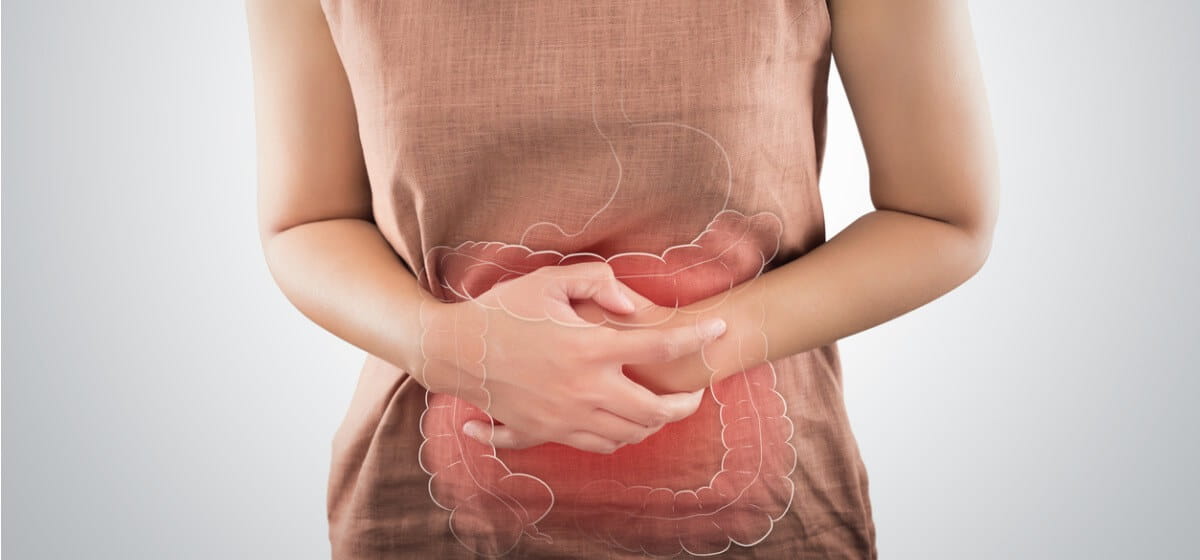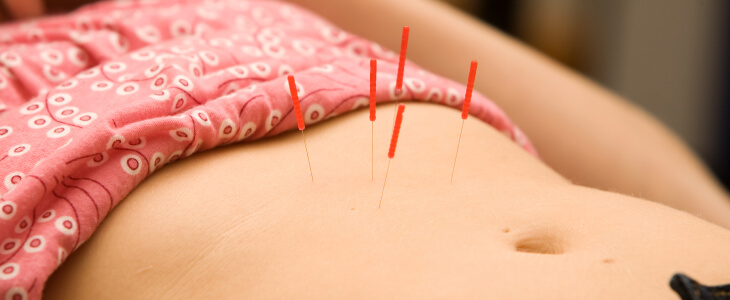Uncomfortable Bloating and Acupuncture Treatment in Tokyo: A Natural Solution for Digestive Relief
Uncomfortable bloating is a common issue that affects millions of people worldwide. Whether it’s caused by dietary choices, stress, or underlying medical conditions, bloating can significantly impact quality of life. For those seeking natural remedies, acupuncture has emerged as a promising solution. This article explores the causes of uncomfortable bloating, how acupuncture can help, and practical steps to incorporate this holistic therapy into your wellness routine.
- What is Uncomfortable Bloating?
- Common Causes of Bloating
- Acupuncture Treatment in Tokyo
- How Acupuncture Addresses Uncomfortable Bloating
- Scientific Evidence Supporting Acupuncture for Bloating
- What to Expect During an Acupuncture Session
- Benefits of Acupuncture for Uncomfortable Bloating
- Lifestyle Tips to Complement Acupuncture for Bloating
- Potential Risks and Considerations
- Acupuncture vs. Other Treatments for Bloating
- Conclusion
What is Uncomfortable Bloating?
Bloating is the sensation of fullness, tightness, or swelling in the abdomen, often accompanied by discomfort or pain. It can make your stomach feel distended, and in some cases, it may be visible as abdominal swelling. While occasional bloating is normal, persistent or severe bloating can be a sign of an underlying issue.
Maybe You Need:

Common Causes of Bloating
Bloating can stem from a variety of factors, ranging from lifestyle choices to medical conditions. Here are some of the most common causes:
Dietary Triggers:
- Gas-Producing Foods: Foods like beans, broccoli, cabbage, and carbonated drinks can lead to gas buildup in the digestive tract.
- Food Intolerances: Lactose intolerance, gluten sensitivity, or other food intolerances can cause bloating after meals.
- Overeating or Eating Too Quickly: Consuming large meals or eating too fast can overwhelm the digestive system, leading to trapped air and bloating.
Digestive Disorders:
- Irritable Bowel Syndrome (IBS): A common condition that causes bloating, abdominal pain, and irregular bowel movements.
- Small Intestinal Bacterial Overgrowth (SIBO): An overgrowth of bacteria in the small intestine can lead to excessive gas production and bloating.
- Gastroparesis: A condition where the stomach empties slowly, causing food to linger and produce gas.

Hormonal Changes:
- Menstruation or Menopause: Hormonal fluctuations, particularly in women, can lead to water retention and bloating.
- Pregnancy: Hormonal changes and physical pressure on the digestive organs can cause bloating.
Stress and Anxiety:
Stress can disrupt the gut-brain axis, slowing digestion and causing bloating. Emotional stress may also lead to swallowing air (aerophagia), contributing to discomfort.
Other Factors:
Dehydration, lack of physical activity, or certain medications can contribute to bloating.
Understanding the root cause of bloating is essential for effective treatment. While dietary changes and lifestyle adjustments can help, acupuncture offers a unique, holistic approach to addressing both the symptoms and underlying causes of uncomfortable bloating.
Acupuncture Treatment in Tokyo
Acupuncture is a key component of Traditional Oriental Medicine (TOM) that has been practiced for thousands of years. It involves the insertion of thin, sterile needles into specific points on the body, known as acupuncture points or meridians, to balance the body’s energy flow. According to TOM, disruptions in energy can lead to physical and emotional imbalances, including digestive issues like bloating.
Modern research suggests that acupuncture may work by stimulating the nervous system, promoting blood flow, and releasing endorphins, which can help regulate bodily functions and reduce inflammation. For bloating, acupuncture targets specific points to improve digestion, reduce gas, and alleviate discomfort.

How Acupuncture Addresses Uncomfortable Bloating
Acupuncture offers a multifaceted approach to relieving bloating by addressing both physical and emotional factors. Here’s how it can help:
Improves Digestive Function:
- Acupuncture stimulates the digestive system, promoting peristalsis (the wave-like muscle contractions that move food through the digestive tract). This can help alleviate sluggish digestion, a common cause of bloating.
- Specific acupuncture points, such as those on the stomach and spleen meridians, are used to enhance digestive efficiency and reduce gas buildup.
Reduces Stress and Anxiety:
Stress is a major contributor to bloating, as it can disrupt the gut-brain axis and slow digestion. Acupuncture promotes relaxation by activating the parasympathetic nervous system, which helps calm the body and improve digestive function.
Balances Gut Microbiota:
Emerging research suggests that acupuncture may influence gut microbiota, the community of microorganisms in the digestive tract. A balanced gut microbiome can reduce excessive gas production and bloating.
Alleviates Inflammation:
Chronic inflammation in the digestive tract can contribute to bloating, especially in conditions like IBS or SIBO. Acupuncture has anti-inflammatory effects that may help soothe irritated tissues and reduce bloating.
Regulates Hormonal Fluctuations:
For women experiencing bloating due to hormonal changes, acupuncture can help regulate hormone levels and reduce water retention, leading to less abdominal discomfort.
Scientific Evidence Supporting Acupuncture for Bloating
While acupuncture has been used for centuries in TOM, modern research is beginning to validate its effectiveness for digestive issues. Here are some key findings:
- A 2018 study published in the Journal of Gastroenterology and Hepatology found that acupuncture improved symptoms of IBS, including bloating, in patients compared to a control group.
- A 2020 meta-analysis in Evidence-Based Complementary and Alternative Medicine concluded that acupuncture was effective in reducing bloating and improving quality of life in patients with functional dyspepsia, a condition often associated with bloating.
- Research in Acupuncture in Medicine (2019) showed that acupuncture could modulate the gut-brain axis, reducing stress-related digestive symptoms like bloating.
While more large-scale studies are needed, these findings suggest that acupuncture can be a valuable tool for managing uncomfortable bloating, particularly when combined with other lifestyle changes.

What to Expect During an Acupuncture Session
If you’re considering acupuncture for bloating, here’s what you can expect:
- Initial Consultation: Your acupuncturist will conduct a thorough assessment, asking about your medical history, diet, lifestyle, and specific bloating symptoms. This helps them identify the root cause and tailor the treatment to your needs.
- Needle Insertion: The acupuncturist will insert thin, sterile needles into specific points on your body. Common points for bloating include those on the abdomen, legs, and arms, such as Stomach 36 (Zusanli) and Spleen 6 (Sanyinjiao).
The needles are typically left in place for 20–30 minutes while you relax.
- Sensation: Most people experience minimal discomfort during acupuncture. You may feel a slight pinch or tingling sensation when the needles are inserted, followed by a sense of calm or warmth.
- Follow-Up Sessions: Acupuncture is often most effective when done in a series of sessions. Your acupuncturist will recommend a treatment plan, typically involving weekly or biweekly sessions for several weeks.
- Complementary Therapies: Many acupuncturists combine acupuncture with other TOM practices, such as cupping, moxibustion (heat therapy), or herbal medicine, to enhance results.
Benefits of Acupuncture for Uncomfortable Bloating
Acupuncture offers several advantages for those struggling with bloating:
- Non-Invasive: Unlike medications or surgery, acupuncture is a minimally invasive treatment with few side effects.
- Holistic Approach: Acupuncture addresses both the physical and emotional aspects of bloating, promoting overall wellness.
- Personalized Treatment: Each session is tailored to your specific symptoms and health needs.
- Complementary to Other Treatments: Acupuncture can be safely combined with dietary changes, medications, or other therapies to enhance relief.

Lifestyle Tips to Complement Acupuncture for Bloating
While acupuncture can be highly effective, combining it with lifestyle changes can maximize its benefits. Here are some practical tips to reduce uncomfortable bloating:
Adopt a Bloating-Friendly Diet:
- Avoid gas-producing foods like beans, cruciferous vegetables, and carbonated drinks.
- Incorporate fiber-rich foods gradually to prevent gas buildup.
- Stay hydrated to support digestion and prevent constipation, which can contribute to bloating.
Eat Mindfully:
- Chew food slowly and avoid eating large meals in one sitting.
- Practice portion control to reduce strain on your digestive system.
Manage Stress:
- Engage in stress-reducing activities like yoga, meditation, or deep breathing exercises.
- Prioritize sleep to support overall health and digestion.
Stay Active:
- Regular physical activity, such as walking or light exercise, can stimulate digestion and reduce bloating.
- Try gentle abdominal massages to promote gas release.
Consult a Healthcare Provider:
- If bloating persists or is accompanied by severe symptoms (e.g., weight loss, blood in stool, or intense pain), consult a doctor to rule out serious conditions like SIBO, celiac disease, or gastrointestinal obstructions.
To ensure safe and effective treatment, it’s essential to choose a qualified acupuncturist. Here are some tips:
- Check Credentials: Look for a licensed acupuncturist (L.Ac.) who has completed accredited training in TOM or acupuncture.
- Read Reviews: Check online reviews or ask for recommendations from friends or healthcare providers.
- Ask About Experience: Choose an acupuncturist with experience treating digestive issues like bloating.
- Verify Cleanliness: Ensure the practitioner uses sterile, single-use needles and follows proper hygiene protocols.

Potential Risks and Considerations
While acupuncture is generally safe, there are a few considerations to keep in mind:
- Mild Side Effects: Some people may experience temporary soreness, bruising, or fatigue after a session.
- Medical Conditions: Inform your acupuncturist about any medical conditions, medications, or pregnancy to ensure safe treatment.
- Not a Cure-All: Acupuncture may not completely eliminate bloating, especially if it’s caused by a serious medical condition. It’s best used as part of a comprehensive treatment plan.
Always consult with your healthcare provider before starting acupuncture, especially if you have underlying health conditions.
Acupuncture vs. Other Treatments for Bloating
How does acupuncture compare to other common treatments for bloating? Here’s a quick comparison:
Medications:
Over-the-counter remedies like simethicone (Gas-X) or lactase supplements can provide quick relief but may not address underlying causes.
Acupuncture offers a more holistic approach, targeting both symptoms and root causes without the risk of medication side effects.
Dietary Changes:
Eliminating trigger foods or following a low-FODMAP diet can be highly effective but requires strict adherence.
Acupuncture complements dietary changes by improving digestion and reducing stress, making it easier to stick to a bloating-friendly diet.
Probiotics:
Probiotics can help balance gut microbiota but may take weeks to show results.
Acupuncture may provide faster symptom relief while supporting long-term gut health.
By combining acupuncture with other evidence-based strategies, you can create a comprehensive plan to manage bloating effectively.

Conclusion
Uncomfortable bloating can be a frustrating and disruptive condition, but you don’t have to live with it. Acupuncture offers a natural, holistic approach to relieving bloating by improving digestion, reducing stress, and addressing underlying imbalances. By combining acupuncture with lifestyle changes like a balanced diet, mindful eating, and stress management, you can take control of your digestive health and enjoy lasting relief.
If you’re ready to explore acupuncture for bloating, consult a licensed acupuncturist to create a personalized treatment plan. With its long history and growing scientific support, acupuncture could be the key to a happier, healthier gut.
You need acupuncture treatment for Uncomfortable bloating? Contact Fuji Wellness now!
Fuji Wellness:
- Address: 132-0031 Matsushima 1-chome, 21-14, Tokyo, Japan
- Chat with us: Click here
- Email: sunnyphamsensei@gmail.com







